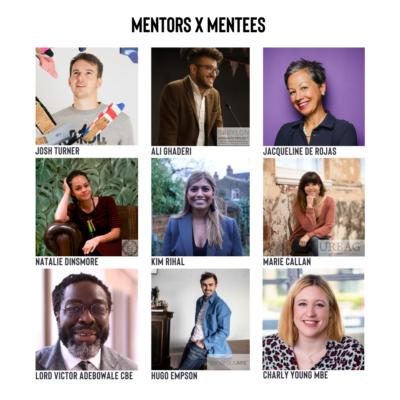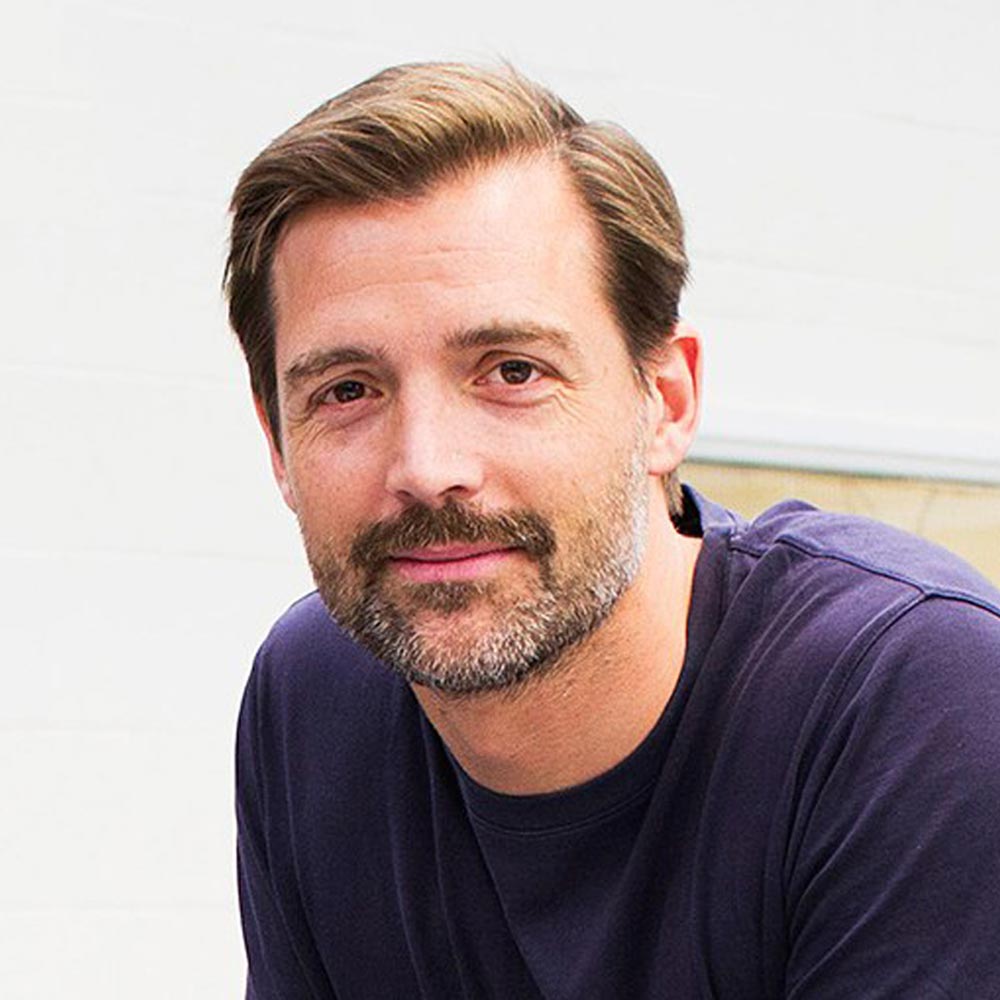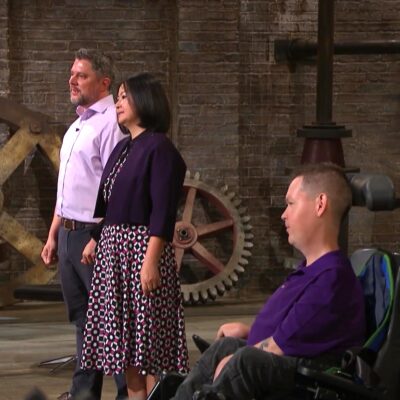
Read our 2022/23 Impact Report
In our Impact report we share that we proudly hosted 73 mentoring sessions for social enterprises and charities in the past year.
The textiles industry is broken according to the Great British Sewing Bee star (and Expert Impact mentor). But he knows how to fix it – and he thinks it will help rebuild communities into the bargain.

It’s not often you hear someone who sells clothes for a living telling you that you need to buy less of them, but that’s exactly what Patrick Grant delivered to an audience at the recent Social Enterprise Futures conference … along with a whole load of other opinions besides.
Now probably more famous as a TV personality due to his star turn on the BBC’s Great British Sewing Bee, Grant has actually spent more than 16 years in the textiles industry. But boy does he think there is a lot wrong with it.
“The loss of a lot of manufacturing jobs here has created social problems that are costing us lots and lots of money elsewhere in society,” said Grant.
There were once 1.5 million people working in the UK textile industry, a number that has shrunk to 94,000 today. The majority of that trade went abroad, in particular, when clothing could be made more cheaply in other countries.
“First of all to Hong Kong, then Hong Kong got too expensive. So it went to China and now China is too expensive and it moved to Bangladesh and Vietnam and Cambodia. Now they’re getting too expensive and people are starting to look at manufacturing in Africa,” said Grant.
All of which created a lot of unemployment in the areas where textiles were produced – Lancashire, Yorkshire and the Scottish borders.
“The loss of those jobs have ripped communities apart. And they put lots and lots of people on the dole (state unemployment benefits). And we know that when people are on the dole healthcare costs go up, crime goes up. There are so many knock on effects to this loss of manufacturing,” said Grant.
Even in the 15 years in which he has been working in textiles, Grant thinks he has seen the loss of thousands of jobs. So he decided to do something about it. He has several businesses based in Lancashire, but one, Community Clothing, he described as “a job creation scheme”.
“We have to start educating people about how great it is to come and work in manufacturing and to build a pipeline of people of all ages who want to come into this industry, who want to come and enjoy making something great every week,” said Grant.
He described the close knit relationship his factory workers have with each other, forged as much over tea break chats as the collective pride in producing good clothes for people to wear.
Grant would like to see a return to “small capitalism” where manufacturing helps build communities, where the owners of the factories cared about the local town because their kids went to school there and they shopped locally.
And he doesn’t buy the argument that manufacturing abroad has helped lift people out of poverty in developing countries, describing exploitative wages, poor working conditions and a lack of loyalty to those communities. If manufacturing in Asia fails to be cost effective, he thinks it will move to wherever labour is cheap and regulations are slack.
And then there’s the environmental problem. It’s been well documented that the fashion industry is a major polluter, responsible for about 8-10% of global carbon emissions.
“Something like 350 million barrels of oil get used every year to make clothing and we made 100 billion garments globally last year. It’s absolutely bananas.
“We need to consume a lot less and we need the things we consume to have a much lower footprint. The way to do that is by making good stuff and making it locally.
“It’s about making an affordable everyday option for consumers and consumers making that choice to buy fewer, but better, things from us rather than a load of bad stuff from somebody else. They’re going to help not just create jobs, but rebuild the whole system,” said Grant.
Patrick Grant is one of more than 70 mentors available to leaders of social purpose organizations. For more information, click here.
Photo by Diva Plavalaguna from Pexels

Read our 2022/23 Impact Report
In our Impact report we share that we proudly hosted 73 mentoring sessions for social enterprises and charities in the past year.

Social entrepreneurs partner to help homeless and refugees
Proving you’re never too young to be a social entrepreneur is 17 year old Jacob Bell, whose candle making has led to a partnership with one of the poster boys of social enterprise.

How does it feel to appear on Dragons’ Den?
Rene Perkins of CityMaaS, who appeared on the show during the most recent run, reveals the truth about appearing on the perennial television favourite.